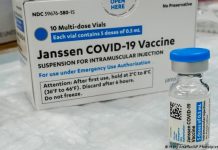An international investigation has revealed that people in nearly every region of the planet could benefit from rebalancing their diets. The researchers have estimated that one in five deaths worldwide can be attributed to poor diets.
The Global Burden of Disease study tracked dietary trends from 1990 to 2017 in 195 countries. The analysis showed that diet contributes to a range of chronic diseases in people around the world.
Globally, 11 million deaths in 2017 were linked to poor diets. The highest number of these fatalities was associated with cardiovascular disease, followed by various cancers and type 2 diabetes. Overall, the largest number of diet-related deaths were caused by eating too much sodium, not enough whole grains, and not enough fruits.
Across all 15 dietary factors examined in the study, more deaths were tied to a lack of eating healthy foods as opposed to eating too many unhealthy foods. In 2017, for example, more deaths were caused by diets that were low in whole grains, fruit, nuts, and seeds than by diets high in trans fats, sugary drinks, and red and processed meats.
Out of 195 countries, the proportion of diet-related deaths was highest in Uzbekistan and lowest in Israel. The UK ranked 23rd, while the United States ranked 43rd. According to the researchers, the findings highlight the urgent need for coordinated global efforts to improve diet.
Study co-author Dr. Christopher Murray is the Director of the Institute for Health Metrics and Evaluation at the University of Washington.
“This study affirms what many have thought for several years – that poor diet is responsible for more deaths than any other risk factor in the world,” said Dr. Murray. “While sodium, sugar, and fat have been the focus of policy debates over the past two decades, our assessment suggests the leading dietary risk factors are high intake of sodium, or low intake of healthy foods, such as whole grains, fruit, nuts and seeds, and vegetables.”
“The paper also highlights the need for comprehensive interventions to promote the production, distribution, and consumption of healthy foods across all nations.”













